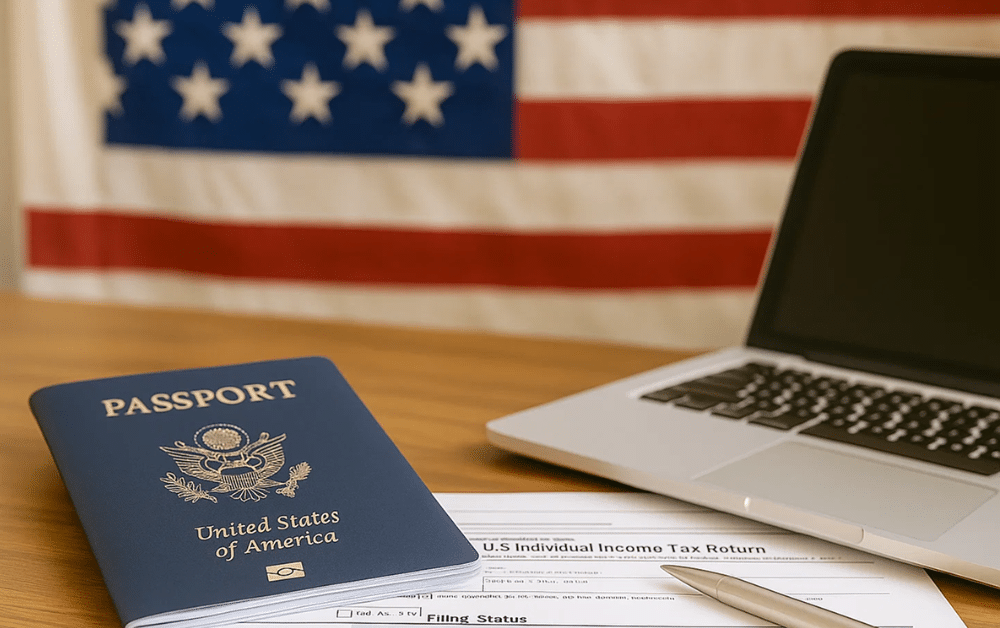Can Combat Zone Workers Use the Foreign Earned Income Exclusion?

Yes, defense contractors and civilian employees supporting US military operations in combat zones can use the Foreign Earned Income Exclusion (FEIE) to exclude up to $130,000 of their 2025 earnings from US taxation. Military personnel have access to the Combat Zone Tax Exclusion instead, which often provides even greater tax relief.
If you’re working in a combat zone and feeling overwhelmed about your US tax obligations, you’re not alone. According to the IRS, the Foreign Earned Income Exclusion increased to $130,000 for 2025, providing substantial relief for Americans working overseas. Whether you’re military personnel or a defense contractor, significant tax benefits are available and easier to claim than you might think.
What Is the Combat Zone Exclusion?
The combat zone exclusion applies to wages and compensation paid by the US government to military and civilian employees. To qualify, employees must be serving in a designated combat zone or hospitalized as a result of serving in a combat zone.
This exclusion represents one of the most generous tax benefits available to US service members and government employees. Under this provision, eligible personnel can exclude their entire military pay from federal income taxation while serving in active combat areas. For enlisted personnel, warrant officers, and commissioned warrant officers, this means complete tax-free earnings during deployment.
Key Benefits of the Combat Zone Exclusion:
- Automatic Application: Unlike contractor exclusions, the combat zone exclusion automatically appears on your Form W-2, with excluded amounts already removed from Box 1 wages
- No Filing Requirements: Military personnel don’t need to file additional forms or calculate exclusions manually
- Comprehensive Coverage: Includes base pay, imminent danger pay, and other qualifying combat-related compensation
- Extended Benefits: Also covers leave payments, reenlistment bonuses, and certain awards earned during combat zone service
Officers are limited to the highest enlisted pay rate plus imminent danger pay, but enlisted personnel can exclude their entire military compensation.
The beauty of this exclusion lies in its simplicity for military personnel. No complex calculations or additional paperwork are required – the exclusion is built directly into the military pay system.
What Tax Relief Is Available for Combat Zone Workers?
Combat zone workers have access to two different but equally valuable tax exclusions, depending on their employment status:
- Military Personnel and Government Employees can use the Combat Zone Tax Exclusion, which excludes all military pay from federal taxation while serving in designated combat areas. For enlisted personnel, this means completely tax-free earnings during deployment.
- Defense Contractors and Contractor Employees can use the Foreign Earned Income Exclusion to exclude up to $130,000 of their 2025 foreign earnings from US taxation. This exclusion can eliminate most or all of your US tax liability while working overseas.
The key difference is automatic versus manual application. Military personnel automatically receive their combat zone exclusion on their W-2 forms, while contractors must claim the FEIE by filing Form 2555.
How Does the Foreign Earned Income Exclusion Work for Contractors?
Defense contractors working in combat zones can exclude substantial amounts of their foreign earnings from US taxation. For the 2025 tax year (filed in 2026), you can exclude up to $130,000 of qualifying foreign income.
Recent Law Changes Made Qualification Easier
Before 2018, most contractors were unable to qualify for the FEIE because their tax home remained in the US. Congress addressed this issue by exempting contractors supporting US military operations in combat zones from the tax home requirement.
Now you only need to meet one of two residency tests:
- Physical Presence Test: Be outside the US for at least 330 days in any 365-day period
- Bona Fide Residence Test: Establish residence in a foreign country for at least one calendar year
Most combat zone contractors easily meet the physical presence test, given the nature of their deployments.
Real-World Example
Sarah, a defense contractor in Iraq, earned $145,000 in 2025. Using the FEIE, she excluded $130,000 from US taxation and only paid US taxes on the remaining $15,000. Combined with her standard deduction, she ended up owing minimal US taxes despite her high income.
Which Combat Zones Qualify for These Tax Benefits?
The IRS maintains a current list of designated combat zones where these tax benefits apply. Active areas include:
Middle East and Southwest Asia
- Afghanistan and the surrounding airspace
- Iraq and the surrounding airspace
- Syria
- Arabian Peninsula areas, including Kuwait, Saudi Arabia, the UAE, Qatar, Bahrain, and Oman
- Persian Gulf, Arabian Sea, and Gulf of Aden waters
Other Designated Areas
- Philippines (specific regions)
- Sinai Peninsula of Egypt
- Somalia
- Former Yugoslavia (Serbia/Montenegro)
Combat zone designations are subject to change based on ongoing military operations. If you’re unsure whether your location qualifies, the IRS publishes updated lists of all qualifying areas, along with their effective dates.
Should Contractors Use the FEIE or Foreign Tax Credit?
This decision depends on the tax situation in your host country:
Use the FEIE When:
- Working in low-tax or no-tax countries (most Middle East locations)
- Your foreign tax rate is lower than US rates
- You want to exclude income rather than claim credits
Use the Foreign Tax Credit When:
- Working in high-tax countries where you pay substantial local taxes
- Your foreign tax rate exceeds the US rates
- You’ve already maximized your FEIE exclusion
Example Comparison
Mike works in Kuwait (no income tax) and earns $120,000. The FEIE excludes his entire income from US taxation, resulting in $0 US taxes owed.
Jennifer works in the UK (high tax rates) and earns $120,000, paying $35,000 in UK taxes. The Foreign Tax Credit eliminates her entire US tax liability by providing dollar-for-dollar credits for foreign taxes paid.
What About Other US Tax Obligations?
These exclusions don’t eliminate all US tax requirements. Combat zone workers must still:
- File Annual Tax Returns using Form 1040, reporting worldwide income, even if no taxes are owed after exclusions
- Report Foreign Bank Accounts if you have combined balances exceeding $10,000 at any time during the year (FBAR filing required by April 15, extended to October 15)
- Pay Self-Employment Taxes if you’re an independent contractor (the FEIE doesn’t reduce self-employment tax obligations)
Combat pay can be treated as earned income for IRA contribution purposes, even if it is excluded from taxation, providing valuable opportunities for retirement planning.
How Do I Claim the Foreign Earned Income Exclusion?
Contractors must claim the FEIE by filing Form 2555 with their annual tax return. This form calculates your exclusion amount based on:
- Your qualifying foreign-earned income
- The number of days you met residency requirements
- Any limitations based on your specific situation
Filing Timeline
Expats living abroad on April 15 automatically receive an extension to June 15 to file their returns. You can request additional extensions if needed to meet the physical presence or bona fide residence requirements.
Keep detailed records of your time in combat zones and outside the US. Documentation requirements may arise during IRS examinations or when establishing qualification periods.
What If I’m Behind on Filing?
If you’ve missed filing requirements while deployed, don’t panic. The IRS offers several penalty relief programs for expats, including:
- Streamlined Procedures for taxpayers with non-willful compliance failures
- Automatic Extensions for those serving in combat zones
- Reasonable Cause Relief for penalties related to military service
The key is addressing the situation promptly rather than continuing to delay. In our experience helping thousands of expats catch up on their filings, the penalties are often much less severe than people fear.
Can I Also Use the Foreign Housing Exclusion?
Yes, if you qualify for the FEIE, you may also be eligible for the Foreign Housing Exclusion. This benefit allows you to exclude qualifying housing expenses above 16% of the FEIE amount ($20,800 for 2025) from your US taxes.
Qualifying expenses include rent, utilities, household repairs, and property insurance, but exclude mortgage payments and the cost of domestic help.
Getting Your Combat Zone Taxes Right
Working in a combat zone is challenging enough without worrying about tax compliance. The tax exclusions available to combat zone workers provide substantial relief, but claiming them correctly requires attention to detail and proper filing procedures.
Whether you’re eligible for the automatic Combat Zone Tax Exclusion as military personnel or need to file Form 2555 for the Foreign Earned Income Exclusion as a contractor, these benefits can save you thousands of dollars in US taxes.
If you’re ready to be matched with a Greenback accountant, click the get started button below. For general questions on expat taxes or working with Greenback, contact our Customer Champions.
This article provides general information about US tax obligations for combat zone workers. Tax situations vary, and you should consult with a qualified tax professional for advice specific to your circumstances.



